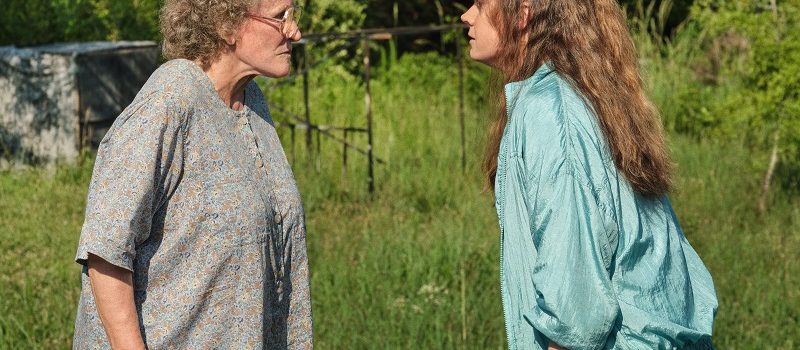Once in a while, this critic feels as if he is going against the grain of the entire movie critique establishment. That is firmly the case with Hillbilly Elegy. The J.D. Vance book of the same name was a huge hit and supposedly was an introduction to Trump’s America and an explanation for how the country voted in 2016. I prefer to think of it as a memoir about a boy who grows up and does good, despite the anchors pulling him down that is his family.
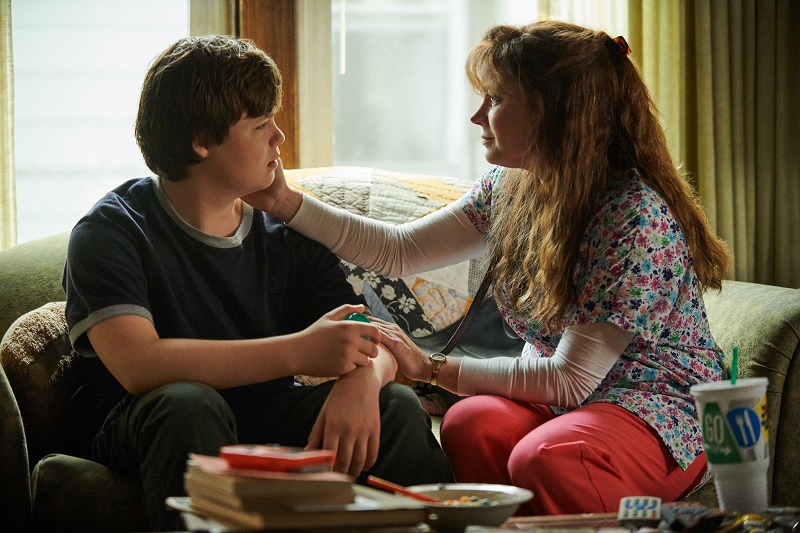
Ron Howard is bringing Hillbilly Elegy to life for Netflix and it features two Oscar-worthy turns by two actresses who have long been overlooked for an Academy Award, Amy Adams and Glenn Close. They play mother and daughter with Adams also portraying the maternal role to Vance (Gabriel Basso). Well, at least she tries. More often than not, Vance is the more mature one in this relationship and his success in life is astounding, given the framework that his family provided.
There has long been a knock on Howard that his ability to capture emotion is hindered, almost sacrificed, for the forward movement of the plot in his films. That could be applied to this film. Except there’s one problem. There is unconditional love—and a tough-love at that—that is emitted from Close’s Mamaw to Vance. That adoration from a grandmother to her grandson is the centerpiece, emotionally, of Howard’s film. Now, Adams’ character Bev on the other hand, is an emotional mess and is hardly ever there for her son as she battles the demons of addiction. Her lack of emotive expression (and possession for that matter) is ingrained in the character and not an issue to place at Howard’s feet.
The fact is I don’t see any emotional abyss in Hillbilly Elegy, except where it serves the plot as an integral spoke in the wheel that comprises these characters. These are real people, brought to life first in Vance’s book, then in the script adaptation by Vanessa Taylor. She is an Oscar-nominated screenwriter. So, what script was Taylor nominated for creating? The eventual Best Picture winner, The Shape of Water. Now, there’s a film that is driven by emotion. It literally is dripping with it. So, Taylor is no stranger to penning emotionally rich stories and she has done it again with Elegy.
Where critics are missing the point here is that what seems like emotional absence, is truly a character trait. There is also the middle American stiff upper lip that mirrors the English. As a product of that swath of the country, this writer keenly knows the difference between an emotional black hole and a lack of emotion. Witnessing Mamaw as she, essentially, raises Vance is a lesson in reality. Not only does it apply to folks in the Midwest, but nationwide—especially during challenging times like the ones we’re experiencing currently.
An enormous reason why the film resonates is because of the performances across the board. Sure, we expect brilliance from Close and Adams. There is little doubt that both will hear their names called for Academy Awards nominations. But it is the collective charged with bringing Vance to life through various stages of his life that are rivetingly righteous.
Gabriel Basso (Super 8) portrays J.D. as an adult while Owen Asztalos (Diary of a Wimpy Kid: The Long Haul) tackles him as a teen/young man. The duo play halves of the same circle. As such, both thespians have superbly encapsulated a soul trying to make sense of their surroundings, all while keeping one eye on the future and what that can mean to them. When we meet adult Vance, he is a law school student at Yale University and is coming up on employment interviews for the summer session that are critical to one’s future as an attorney.
Everything he does is borne of his childhood, portrayed by Asztalos. But with the benefit of time and distance—now that he has been away in the military, college, and then law school—Vance can put it all on the line in a moment of familial weakness. Specifically, he scored an interview with a Washington, D.C. law firm that is his dream job. Instead of being in New Haven at Yale, he is in Ohio because his mother Bev has overdosed on drugs (again).
His sister Lindsay (Haley Bennett) phoned him and never dreamed that the phone call would result in him missing critical vocational opportunities. But in the back of her head, she had to know how her brother would respond to the news. Part of the reason he joined the military was to get away from his family, largely his mother, but the entire clan to be honest.
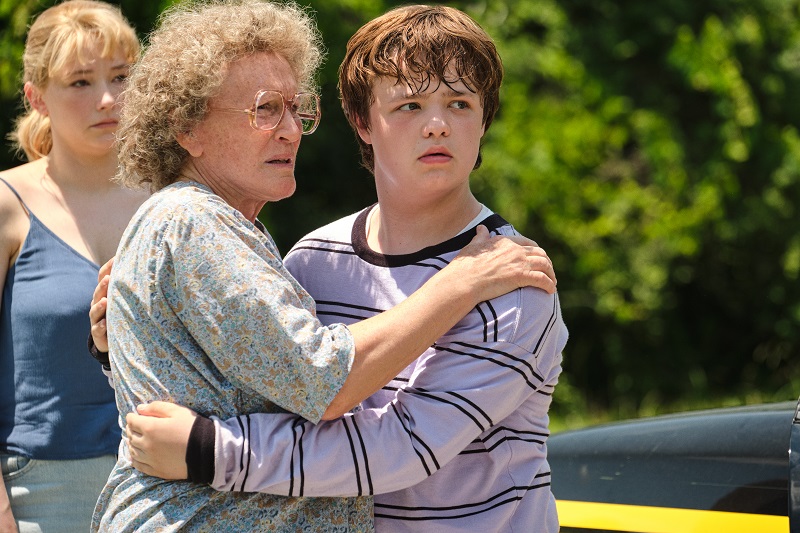
There is something intangible about the relationship between Mamaw and J.D. that has, over the course of time, made the aspiring lawyer feel responsible for his family. After all, without a father in the picture, at every age, he was the “man of the house.” It was a role he took seriously, even after his mother makes poor decision after poor decision.
Also, never underestimate the power of guilt when it comes to familial duties. He knows his mother is sick and her ailment is addiction. Even though he has to be in Connecticut for the interview of a lifetime in 10 hours, he still checks his mother into a hotel because she has nowhere else to go. She turned down rehab (again), and yet J.D. felt compelled to ensure her safety. That’s enough to take the emotional aspect of guilt and turn it into righteous-driven anger.
Basso has a command that is equal parts military veteran and a future lawyer. We feel his pain and emotional drain that this has immensely colored his life. As Asztalos brought a youthful verve and wonder to his characterization, Basso brings a grounded reality to adult J.D. that is also colored by his relationship with Usha (his live-in girlfriend, portrayed by Frida Pinto). J.D. has shielded much of his past from her, due to equal parts shame and seeking to keep her from being dragged down what he sees as a rabbit hole of midwestern outdated societal mores.
One cannot talk about Adams and her mesmerizing turn as Bev without also discussing Close’s Mamaw. Like Basso and Asztalos being grouped together, so too should Close and Adams when it comes to their character development and portrayal. Bev is who she is because of her upbringing and Mamaw has become who she is in her older age due to the strain that Bev has caused her over the decades.
Rarely has two performances been so intertwined as Adams and Close’s characters are in Hillbilly Elegy. Both actresses are brilliant and in Howard’s film, each gets lost in their onscreen persona in a way that couldn’t be more starkly different. The American Hustle star has been nominated for Oscar gold six times without a win. The Fatal Attraction star has seven winless nods under her belt. Could this be the year that either actress ends that drought? It’s hard to imagine a world where one wins, and the other doesn’t. Although the Oscars have a long history of ignoring intertwining performances as if an actor performers their best work in a vacuum.
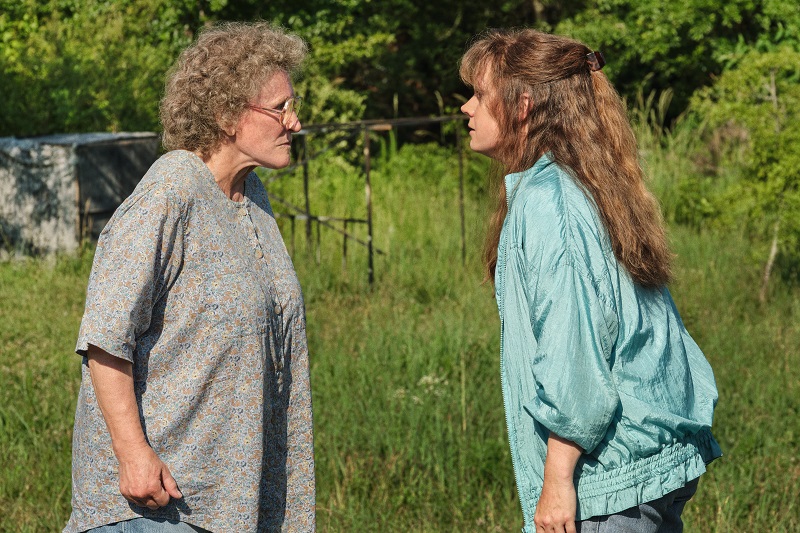
Close, in particular, so loses herself in her grandmother role that she is completely and utterly unrecognizable. It is not only her makeup and hair (and costumes), but how she physically carries herself and the cadence of her speech. It is not the showiest of Close performances. But it is one laden with nuance. Her turn is also a tribute to that so-called “Midwestern stock.” Those that settled in that swath of America not only can endure the harshest of winters, but has weathered countless storms that concern economics, familial discord, and downright tragedy.
That aspect is also seen in Adams’ turn. Although she is hobbled by addiction, there is a strength to her that keeps her moving forward. Sure, there is a selfishness that rules the day with Bev. But as Adams portrays her, “it is what it is” and everyone else simply has to accept that. That is no easy task for a thespian to capture that spirit and still have the character be compelling. She has to be, or the viewer would fault Vance for sacrificing his own happiness for a mother who is all about the “self.”
It’s a dazzling dichotomy and only an actress of Adams’ mettle could have triumphed with something so difficult to obtain.
When it was first announced that Howard was bringing Vance’s bestselling book to the screen, it seemed like an odd choice for the Rush and A Beautiful Mind filmmaker. Then again, he is the storyteller who gave us the Depression-era-set Cinderella Man and the American dream tome Far and Away.
The truth is Howard is an everyman filmmaker whose stamp is never absolute. There is such a variety to his resume, that it is difficult to watch a movie and say definitively that it is a “Ron Howard movie.” You can always say that about Steven Spielberg or Martin Scorsese, but never Howard and Hillbilly Elegy is further proof of that fact. He is a keep you guessing storyteller. That is probably the best compliment a filmmaker could receive.
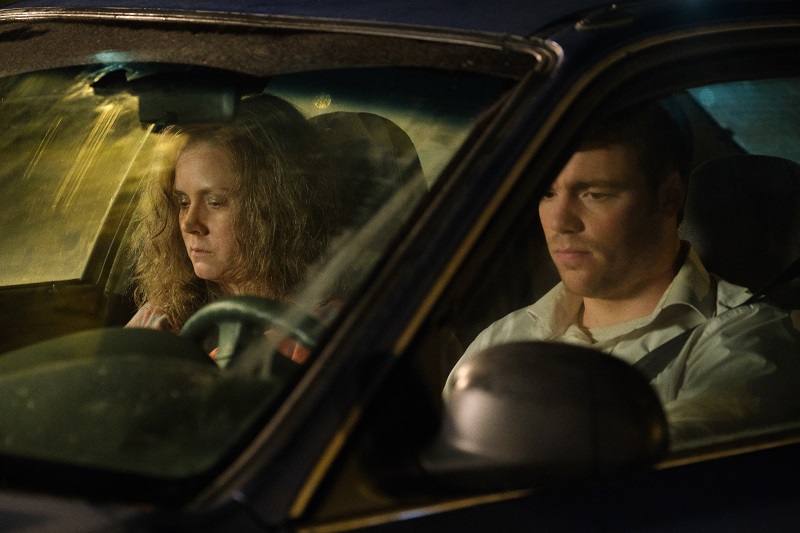
Despite its much-described answer to the question of how we got President Trump, Hillbilly Elegy never drifts into politics or anything remotely resembling that element.
Honestly, after experiencing Howard’s film, that parallel seems completely out of left field. It’s not like American Sniper was about President George W. Bush!
This is simply a story about a family. They could have been from California, Arkansas or Ohio and Kentucky. That aspect is why the book (and thus, film) resonates. It is not because working class families, like the Vances, are why America put a supposed billionaire in the White House—who inexplicably found allies in working class voters.
That lack of socio-political connection should benefit a film about a group of Americans that Hollywood supposedly has trouble capturing and reaching. Truthfully, Howard puts a mirror to what so many American families are going through—particularly since the onset of the pandemic. That is why the Hillbilly Elegy film hits its mark.
Grade: B

